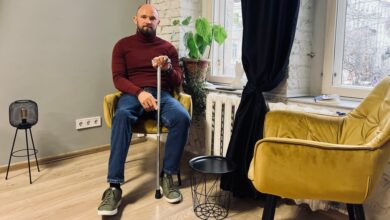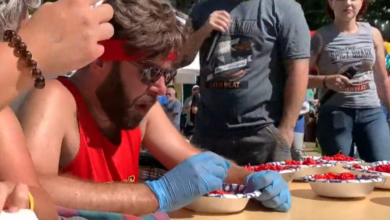Israel-Hamas war: How to talk to kids about the conflict

With the Israel-Hamas war dominating headlines, conversations and social media feeds, many children will inevitably have questions about the deadly conflict unfolding in the Middle East. Experts say it’s important to be honest, optimistic and let children lead the conversation.
“I would start with saying invite your child to share what they’ve heard, and what they know already, what they’re wondering about, rather than launching into answers and explanations that they might not be looking for,” Toronto-based child psychologist Dr. Dina Lafoyiannis told CTVNews.ca. “Because you might go into the topic and a direction that they don’t actually need, like they might be concerned about their own safety… rather than years of politics that they might not understand.”
Lafoyiannis says the next step should be asking if they have questions and answering in a developmentally appropriate way, which would mean far fewer details for younger kids.
“For older children, you might not have all the answers and you can be honest and say that you’re still learning and understanding that too,” Lafoyiannis explained. “For young children often the underlying question they have is about their own safety: Will this happen here. Am I safe? Are we safe? For that, address that directly that that we are safe here.”
For those with friends or families in Israel or the Palestinian territories and may be in harm’s way, Lafoyiannis says it’s important to give children honest updates while being careful not to heighten their sense of worry.
“You can talk about how we might not hear from them for a while because there’s conflict going on,” she said. “You can say things like: we don’t have all the information yet, and that’s really scary and we’ll share the information as we find out.”
Lafoyiannis says parents should also be careful about exposing children to frightening or graphic war imagery and news.
“If it does happen, talk about what questions they have about it,” Lafoyiannis said. “Don’t talk about it at bedtime, talk about it earlier so that you can explore it and try to put it to rest before they go to bed.”
Dr. Shimi Kang, a Vancouver-based psychiatrist and associate clinical professor at the University of British Columbia, says the current situation underscores how vital it is for adults to be are aware of youths’ digital lives.
“We cannot underestimate how much time and how much influence the online world has on young people,” Kang told CTV News. “It’s very important to ask them: what information are they getting online, who are they following, what are the sources of that information, are they credible; so they understand misinformation, polarization, all of the extremism that we are seeing online.”
Kang advises parents and caregivers to approach conversations about conflicts and war with truth, optimism and activism.
“These are very complex situations, but there are some core values that we can reiterate which is treat others how you want to be treated, be kind, and try to have dialogue and communication,” Kang said. “We want to have that optimism and activism, we want to end the conversation on those, meaning reassuring them that they will be okay.”
With so many Canadians having family or cultural ties to Israel and the Palestinian territories, Lafoyiannis and Kang both underscore the value of instilling a sense of our shared humanity in children.
“We want to teach children compassion, even regarding that person who may be committing this horrible act of violence because that’s ultimately how the cycle ends,” Kang said. “The more we dehumanize each other and villainize each other, the less we’re going to see an answer to the cycle.”
“You can also talk about having empathy for others, being kind to each other; if you’re religious you can pray for peace, or you can talk about hoping for peace,” Lafoyiannis added. “Ultimately hold space for (the child’s) emotions, so help them name what they’re feeling – they’re feeling scared, if they’re feeling angry, sad – and validate that it’s normal to have these emotions.”
For those who need extra support in situations like this, help is available. In addition to psychologists and psychiatrists like Lafoyiannis and Kang, mental health services and resources may be available through local school boards and organizations.
There is also Kids Help Phone, a charitable organization that offers free 24/7 online, telephone and text-based mental health support to young people across Canada. They can be reached by phone (1-800-668-6868), text (686868 for young people or 741741 for adults) or online at kidshelpphone.ca.
“It’s important to talk to the young people in our lives about what is happening, instead of shying away from it,” Kids Help Phone executive director of equity, programs and innovation implementation Stephanie Vasiliou told CTVNews.ca. “Asking them what they’ve heard or seen, and how they feel, can help to open up a discussion. Let them know there’s no right or wrong way for them to feel.”
With files from CTV National News Reporter Vanessa Lee




